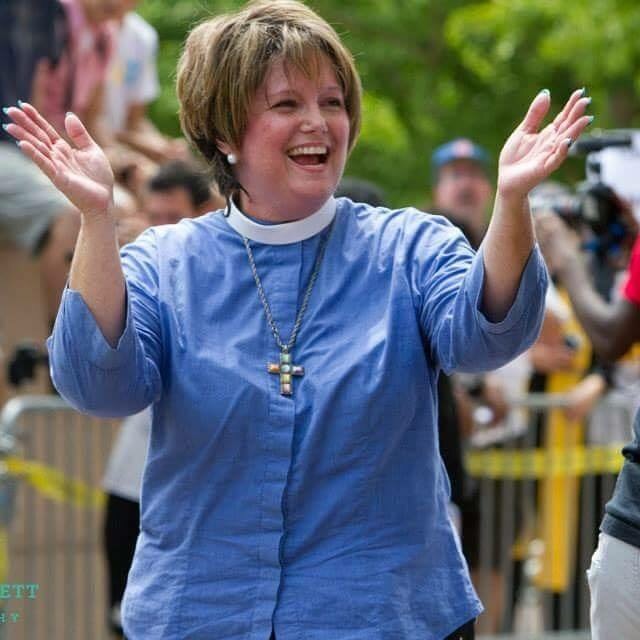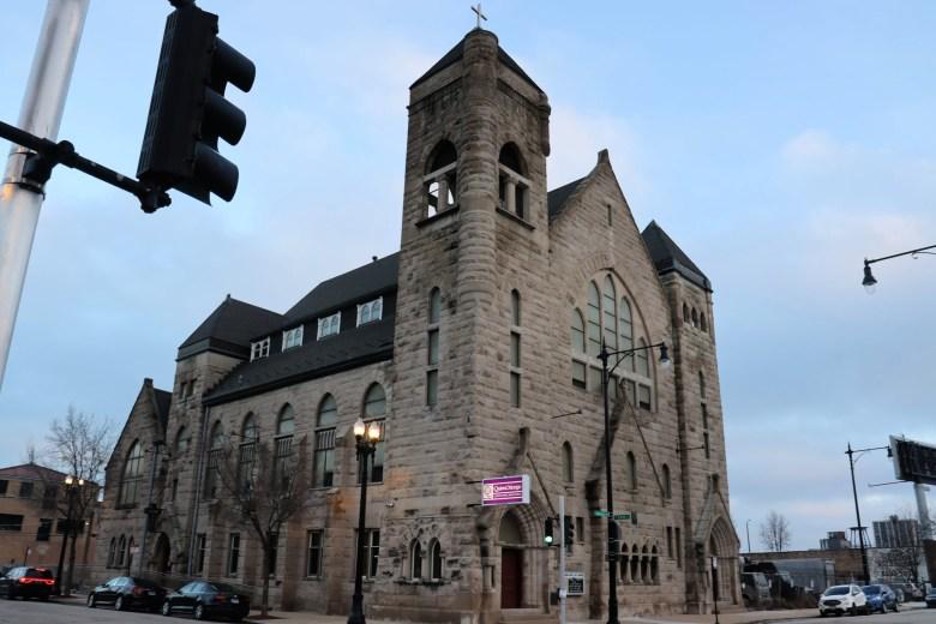By Rev. Renita Green, Contributing Writer
Could affirming bi-vocational ministry and including bi-vocational ministers strengthen the Connectional Church?
During the pandemic slow-down in 2020, I began evaluating my life and my future. I found myself approaching twenty years in pastoral ministry, fifty circles around the sun, and had no financially sustainable plan for my future. It took me a minute to admit it, but ministry was my only concrete plan. Life had not unfolded as I had planned, and I had not adjusted.
Life’s changes found me working part-time for poverty wages while pastoring full-time for housing. My focus was on the church and community. It felt unfaithful to me to pursue a career that would distract from my sense of mission. I stumbled into property management and found that I was good. There were limited opportunities in the area where I lived—smaller town businesses tend to hire from within their community. I held for six years with an out-of-town company forty-five miles from my home. Though I was grateful, I was not happy. One day my daughter encouraged me to remember, “You are living the life you chose to live. If you are unsatisfied with any part of it, you have the power, support, and resources to change it.” She was right. However, I did not want to pursue full-time property management—I am a pastor who loves pastoring.
As Bishop Errenous E. McCloud, Jr. notes, most pastors—especially women—are second career. Ministry had been my primary focus. However, it was clear that I had started backward and needed to refocus—I needed a new plan. While this sounds easy enough, it was very emotionally charged. For more than twenty years, I had not imagined a life without pastoring. We cannot assign ourselves to charges that pay a livable wage. Although I worked very hard in my previous location, I could not advance the finances to a sustainable level. To authentically reimagine a bi-vocational life, I had to wrestle with my faith and struggle with feeling as if I failed the assignment and was abdicating my call. I had to wrestle with issues of worth and value—was I thinking of myself too highly by hoping for a living wage? In conversation with my colleagues, this struggle is commonly experienced.
For several weeks, Bishop Anne Henning Byfield was gracious with her time and spirit as I processed. I listened as she shared her own stories and struggles, history, and hope. The investment she made into my life when needed most is what gave me the courage and confidence to pursue a new path. Through her affirmations, I was able to hear that bi-vocational ministry was not frowned upon by God or the Church. Her assurance helped me embrace a different view of what it meant to be faithful to the call—to God, the Church, my family, and myself. I reached a place where I was open to receiving opportunities outside the pulpit. Within a couple of months, I was offered a full-time ministry position at a university.
Bi-vocational ministry (having a job in addition to the pastoral appointment) is neither a new concept nor is it unusual. According to the 2015 Faith Communities Today survey, fewer than two-thirds (62.2 percent) of U.S. churches have a full-time pastor.
Bishop McCloud has observed over the years that clergy who enter ministry with the financial, professional, and social benefits of secular employment bring enhanced and diverse skills to the pastorate. However, the benefits these pastors bring are often lost because of their limited visibility at denominational gatherings and with the obvious limitations to itineracy. Bi-vocational pastors tend to serve smaller membership congregations that rank lower in the hierarchy of our system. The lower placement on the ladder often disqualifies the pastor from being chosen for upper-level leadership positions. Consequently, the conference and Connection miss out on the value Bishop McCloud addresses regarding bi-vocational clergy’s skills, talents, and resources.
Bi-vocational is not to be understood as part-time. In the words of Rev. Dr. Erika Crawford, “We are all full-time; we are not all fully funded.” With a few exceptions, bi-vocational clergy earn—on average—a reported income that equates to $10 per hour. The ATS Black Student Debt Project (2021) reports that the average salary of Black clergy is $13,000 annually. Bi-vocational clergy earning higher salaries are those at larger churches who are opting to continue their employment for the sake of financial stability. Many pastors fund the financial obligations of their congregations and help congregants with needs. It is not uncommon for pastors to receive only to return their compensation. As a result, the church can appear stronger than in reality, and the struggle of the pastor and congregation goes unseen.
Dwindling numbers in the pews, the rising cost of living, and the accumulation of student loan debt create persistent challenges for those desiring fully-funded pastoral opportunities. Particularly in these unprecedented times, solely depending upon the church for financial stability is risky. Two-thirds of those interviewed for this article shared stories about times when there was not enough income raised to pay their salary. The reality of this probability is too great a risk for those with student loan debt hovering and with families to support. Benefits such as health, medical and dental care create a financial struggle for smaller membership congregations. Employment outside the church is essential for most clergy.
While there is a verbal affirmation for and understanding of the need for clergy to be bi-vocational, many among the lower ranks are anxiously awaiting affirmation through the restructuring of our system—or at the very least, new operating methods. Connectional meetings planned in the middle of the week that require travel exclude those serving smaller congregations. Decisions for the direction of our Church and consideration of congregational and clergy needs are primarily made through the lens of those who make up the smallest demographic of our Church—those able to serve “wholly and solely.”
Bishop Errenous E McCloud, Jr. noted that bi-vocational ministry provides clergy the liberty to be more authentic in their personalities and purpose and less concerned about upsetting someone in the system who would put their financial and vocational future in jeopardy. The other side to this blessing is that one will never be in an instrumental position if he or she is too vocal about discontentment and observations. While bi-vocational clergy may have a greater sense of liberty, that liberty is not without a risk of its own for those hoping to advance among the ranks. The other reality is that bi-vocational people are often not in the room to voice their concerns to those in a position to impact change and feel intimidated to share unsolicited critiques.
Recruiting and retaining experienced clergy continues to be a concern. A 2021 report from the Barna Group estimates 38% of clergy have actively considered leaving full-time ministry. Earlier this year, The United Methodist Church General Board of Higher Education reported the lowest number of persons under 40 entering the ministry in decades. Even though the AME Church does not have denominational statistics compiled, one only needs to listen to a Board of Examiners report in most Annual Conferences to see how are witnessing clergy moving from the pulpit into vocational paths in higher education and other careers. Three clergypersons interviewed for this piece reported being recruited by other denominations, and one recalled the representative indicating, “At least you’ll get paid.” Compensation and benefits are only part of the decision for the exodus. According to those interviewed, other reasons include the constraints of the system—frustration with knowing that changes are needed yet feeling overpowered in making change happen.
Nationally, exhaustion is a leading reason cited by clergy who have left pulpit ministry. A 2021 October report from the Barna Group indicates that only one in three pastors is considered “well” in terms of financial, emotional and physical well-being. This statistic is on par for the clergy interviewed in our Zion, who reported sharing on average 30+ hours in ministry alongside an average of 40+ hours of full-time employment. If there is a congregational or community crisis, the hours increase—clergy do not exactly clock out.
Our structure, being what it is, requires clergy to use vacation time to attend meetings at every level. We learn early to plan for Annual Conference attendance first, our Presiding Elder District meetings second, the Episcopal District third, and anything at the Connectional level is extra. We are taught to be present with our money to receive credit for participation. Financial representation only adds to the frustration for those who deeply desire being authentically included.
Lack of vacation time impacts clergy health as well as clergy families. Most of the clergy contributing to this piece indicated that they have combined family vacations with meetings on more than one occasion—often, the family is out vacationing while the clergyperson is in the meetings. According to an October 2021 Lifeway Research Group report nearly one-third of pastors feel that their work keeps them from spending time with their families and 40 percent are worried about their family’s financial security.
With all of these struggles, each clergyperson interviewed for this article expressed a deep love for the African Methodist Episcopal Church and for pastoring. Pursuing a path outside the pulpit is not an indicator of a person’s lack of love for or devotion to the Church or to the people we are called to serve. Pastors love pastoring—they also love earning a thriving wage and providing for their families both in the present and in the future.
Where do we go from here?
It appears that neither the need for clergy to be bi-vocational nor the church’s need for bi-vocational clergy is going to change any time soon—if ever. I am not convinced that increasing the compensation of clergy is the answer to relieving the burdens of those who serve. Changes in the affirmation of bi-vocational ministry and inclusion of bi-vocational ministers could result in healthier clergy and stronger congregations resulting in a stronger Connection.
The following are suggestions offered:
- Scheduling fewer Connectional meetings, more virtual meetings, shortened duration of meetings.
- Choosing clergy and lay leaders to serve key positions based upon their skills, experience, and results instead of hierarchal placement.
- Establishing and funding a true “minimum salary” department.
- Establishing provisions for pastoral sabbaticals.
Although clergy may be without influence to change polity, concerned laypersons can institute changes at the local level.
- Insist on the pastor taking actual vacations unrelated to meetings or church business.
- Advocate for increased virtual meeting options.
- Compensate pastors as best the church is able.
My sincere thanks to those who shared experiences, ideas, and information for this article: Bishop Errenous E. McCloud, Jr., Presiding Bishop, 3rd Episcopal District, General Officer John Thomas, III, Reverend Dr’s Gloria Barrett, Erika Crawford, Glenell Lee, and Antoni Sinkfield and Reverends DeBora Duckett, Cubie Finley, Mindy Mayes, Morné Meyer, Bridgett Mitchell, Lee Havin-Sapp, and Benessa Sweat.





